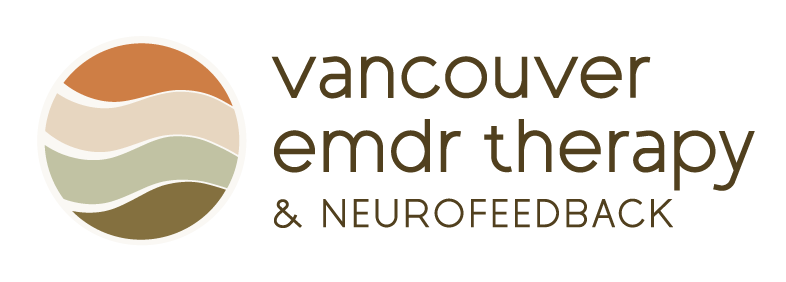Breathe, relationships, Circadian Rhythm, vitamin deficiencies and tea. Read the blog below to learn more…
This is a list of monthly “trauma tips” from a trauma specialist to help you reduce the effects of trauma and chronic stress on your life so you can live from a place of healing, hope and happiness.
Healing from trauma is a different process for each person. As a trauma-focused therapist I never tell my clients to do anything that I haven’t tried or use regularly in my life. I have learned over the years through experience, research, feedback from clients and insights from other professional’s successful ways of healing emotional wounds as well as managing persistent stress. What I share with you here is both cutting edge and tried-and-true techniques for healing.
Trauma Tip #1
 Breathe. When we are in survival mode our breathing becomes affected. We are usually stuck in a shallow breathing pattern. We can change our nervous system but learning breath work. Shift your attention away from upsetting thought’s and images to a “neutral place” your breath. This is like putting your engine into neutral rather than having your foot on the gas.
Breathe. When we are in survival mode our breathing becomes affected. We are usually stuck in a shallow breathing pattern. We can change our nervous system but learning breath work. Shift your attention away from upsetting thought’s and images to a “neutral place” your breath. This is like putting your engine into neutral rather than having your foot on the gas.
Try this exercise below:
- Put your attention on your breath whenever possible.
- Make your breathing deeper, slower, quieter and more regular whenever possible.
- Let your belly expand outward when you inhale.
- To deepen breathing, practice exhaling more air at the end of each breath.
Trauma Tip #2
Relationships are often affected by trauma or chronic stress. And because relationships are also the key to feeling safe and allowing our nervous systems to calm down it is crucial to have a healthy well-functioning partnership. Here is a great resource to learn how to strengthen a relationship with your partner or spouse.
Emotionally Focused Therapy for Couples by Sue Johnson- “Hold Me Tight” book.
Hold Me Tight: Seven Conversations for a Lifetime of Love
To learn more about EFT go to- https://iceeft.com/
Trauma Tip #3
Circadian Rhythm is the 24 our sleep/wake cycle. Stress and trauma can disrupt our circadian rhythm thereby disrupting our sleep. We must balance our circadian rhythm to improve our mental health. Here are some tips:
- Herbal medicine- Valerian, Hops, Passion Flower (Gabba Support). Work with a Naturopathic doctor to decide what supplements are best for you.
- Exercise before 3:00 p.m.
- Take a magnesium sulfate bath
- Neurofeedback
- Wake up when the sun comes up go to sleep when the sun goes down. The most rejuvenate sleep is between 10:00 p.m.-12:00 a.m.
Reference-Dr. Leslie Korn, Ph.D.
Trauma Tip #4
Vitamin deficiencies can exacerbate mental health issues. Although food can provide us with the nutrients that we need, it is often not enough or we are not eating the right types of food that we need for optimal health. In addition, if we do not have a healthy gut microbiome (common with PTSD and chronic stress) then we are not absorbing the vitamins from our food anyway. Nutritional therapy can:
- Reduce inflammation and oxidative stress
- Manage stress response
- Enhance mitochondrial functioning (gut health)
- Balance circadian rhythm
- Enhance neuronal functioning (neurotransmitters in our brain)
- Address epigenetics (alter gene expression)
Reference-Dr. Leslie Korn, Ph.D.
*Work with a Naturopathic doctor to decide what supplements are best for you.
Trauma Tip #5
 I love tea! Herbal teas are a great natural way to reduce stress and calm the body and mind. Teas with Adaptogens such as Licorice, Rhodiola, Ginseng, Kava Root, Passionflower, Holy Basil and Ashwagandha are good for stress management, anxiety and PTSD. Some of my current favorites are: Get Relaxed Tea by The Republic of Tea, Cup of Calm Tea by Traditional Medicinals and Organic India Organic Tulsi Herbal Tea, Sweet Rose.
I love tea! Herbal teas are a great natural way to reduce stress and calm the body and mind. Teas with Adaptogens such as Licorice, Rhodiola, Ginseng, Kava Root, Passionflower, Holy Basil and Ashwagandha are good for stress management, anxiety and PTSD. Some of my current favorites are: Get Relaxed Tea by The Republic of Tea, Cup of Calm Tea by Traditional Medicinals and Organic India Organic Tulsi Herbal Tea, Sweet Rose.
This information is provided by Lemecia Lindsey, LICSW. Lemecia has dedicated her private counseling practice to helping clients heal from trauma. She specializes in EMDR therapy, Neurofeedback and is an Integrative Medicine Mental Health Provider.
*This list is not a substitute for medical intervention. Consult with a doctor to decide what is best for you.




